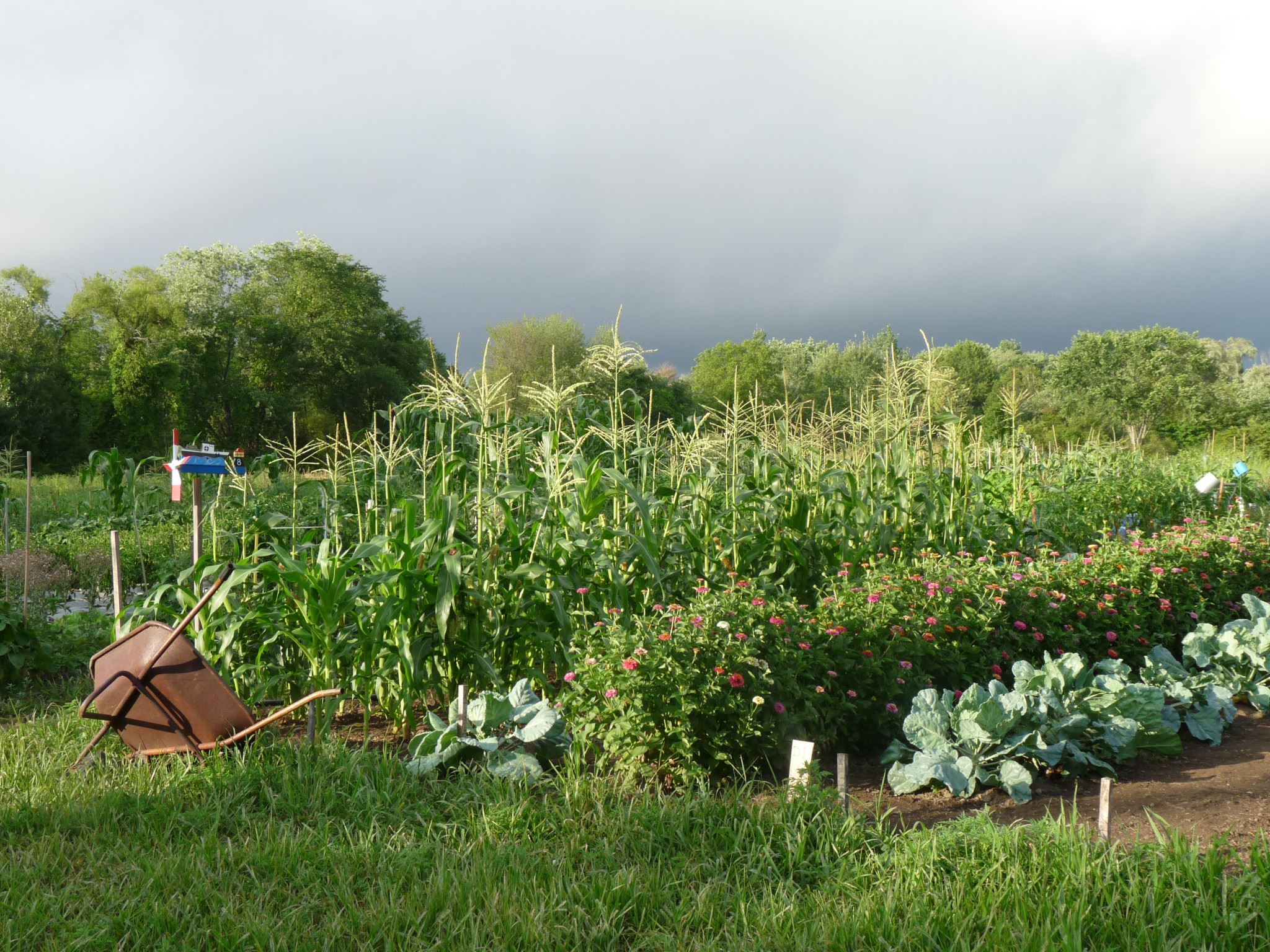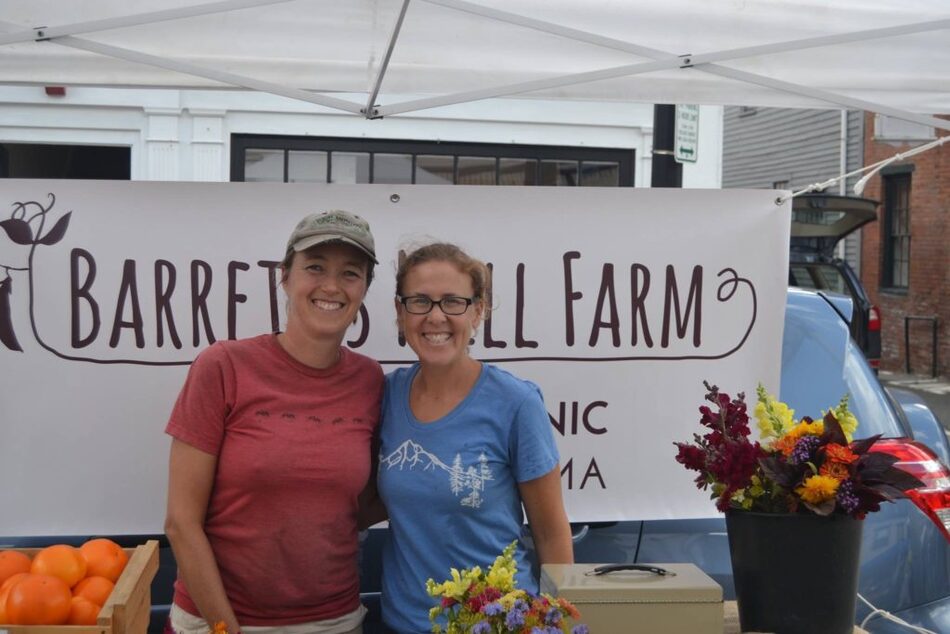Concord has a long history with farming and agriculture.
From the creation of the Concord Grape, to land which has been farmed for generations providing not only Concord’s rural character, but an appreciation for what we now call “farm to table” or simply, living more locally. You may hear people refer to food miles, this is the idea of the “true cost” of the food we consume due to the energy and travel it takes to get it to grocery stores near us. Products such as lettuce are grown in California and have to travel 3,000 miles to get to the East Coast providing a product which may not the freshest it could be, is using a great deal of energy to be moved and may be on the edge of spoiled when it is purchased and brought home. You may be interested in supporting food grown close to home which tastes great and helps your neighbors and community continue on this important tradition.
The local food movement is not a new concept for Concord, we spoke to several of our local farmers and gardeners in Town to find out about their farm or garden property, what growing practices they use, what role farms play in the community, and how farms are connected with our environment. See their responses below and photos courtesy of the farms (plus a couple of DELICIOUS bonus recipes from these champions in our next blog!)
Marshall Farm
We also raise chicken and have fresh eggs available everyday. We raise our eggs and meat on pasture so the chicken really do have a pristine life and are outside almost all the time. The chicken manure helps the land so we never have to apply fertilizer. The chickens also eat all the weed seed and bugs as we rotate them to different pastures.
This is a sustainable way to continue farming by using animals to help the land and soil. We farm to supply the local community and try to connect people back to where their food comes from.
East Quarter Farm (Community Garden)

Here at East Quarter Farm (EQF) we have about 29 gardeners who grow their own produce following the guidelines published by the town of Concord and EQF. All gardening is organic and precludes the use of any non-organic products. Our garden is substantial (24 full size plots). We are gardening neighbors with the farmer Bill Kenney who grows produce for sale and plows our field every spring.
We have seen a resurgence of community gardening interest since the emergence of
COVID-19. Last summer and this summer EQF has almost reached capacity based on water supply and land available. Gardeners feel in control of a portion of their own food supply and enjoy working the land. The challenges to organic gardening are numerous, however, and this year we have had pests (deer, rabbits, voles, turkeys) and insects (beetles, squash bugs) and blight (basil). Pests are controlled somewhat by barriers around plants (chicken wire or row cover), but beetles and other insects are difficult to control. Our gardeners this year decided not to plant potatoes as the Colorado Potato Beetle has been voracious. A season without food might make it disappear!
Community gardens are very important in that they offer residents the opportunity to learn about the process of growing and preserving food.
The long term results of growing your own food may be in the form of pickles, tomato sauce, processed vegetables, dried herbs (dill, sage, thyme, rosemary) pickled beets, frozen beans, peppers and peas. Winter squash and potatoes store well over the winter under the right conditions. We also have taken many bags of extra vegetables to the Open Table Pantry in Maynard.
We are grateful to the town for supporting community gardening. The town delivers compost every year that it is available. The Natural Resources department, specifically Natural Resources Director Delia Kaye, keeps the four community gardens coordinated and, of course, the annual Agricultural Day is an opportunity for farmers to not only display their produce, but also demonstrate the importance that agriculture has on our community.
Hutchins Farm

Hutchins Farm is one of the oldest certified organic vegetable and fruit operations in Massachusetts. Organic since 1973, every season we actively cultivate over 45 acres of vegetables, about an acre of small fruit, and 5 acres of apples. We sell our produce directly to consumers at our farm stand in Concord, MA, and at three weekly farmers’ markets, with a small amount of sales to local restaurants. Our farmstand is located right on the main farm and is open seasonally June – October.
We are certified organic, so we only use approved techniques and materials to control weeds, insects, and diseases. This includes tractor cultivation, hand weeding, and accepting imperfections!
Farming is integrally connected to the environment - everything we do has an effect on the land, our ecosystem, and our environmental health, which likewise has an effect on us!
Farms are places of connection to the earth and larger ecosystem, but they are also places of community connection - a greater sense of place, a touchstone to our current environmental realities, as well as a connection to our agrarian past.
All our produce tastes wonderful when it is fresh and in season! Shopping with local farms gives you a different perspective on the local environment and even the smallest shift in seasons - you learn what is fresh, what is good, and what is going on around you in a unique way. Our customers all know how good the corn is right now, that the tomatoes were late because of the July weather, and that now is the time to make pickles! Shopping locally connects you directly with people growing your food - and connects you to the Concord community at large. The best place to be seen in town is at your local farm!
Barrett’s Mill Farm
Barrett's Mill Farm grows vegetables, fruits, and flowers on 15 acres of Town-owned land. We sell all of our produce directly to customers who come to the farm. We have a farmstand open to the public as well as a Community Supported Agriculture (CSA) program.
We are certified organic so we control weeds using tractors, hoes and hand weeding. To prevent insect damage we cover vulnerable crops with a white fabric row cover. We rotate where we grow each crop group every year in a three year rotation in order to prevent soil borne disease problems.
Farms are very dependent on the environment so as a result we try to be reliable stewards of the land. Farms rely on healthy soils so we grow cover crops to replenish nutrients and prevent erosion. We are dependent on the rivers to irrigate our crops in dry years so are careful to preserve buffer areas and are very affected if water sources are not clean. We are also very impacted by weather events so we are always thinking about climate change and ways to reduce our environmental impact.
Local farms provide fresh healthy produce for the community as well as a place for community members to connect to their food source and enjoy the active open space that farming provides.
Local farms are also community-minded small businesses who are committed to being good neighbors, providing goods and services that our community will enjoy, donating produce to non-profit organizations, and engaging in the community by giving talks to community groups when requested.
[Buying local produce] is a great way to support a small business who is thinking of you and your town in every decision they make. And the veggies and fruits taste great too!
Previous Post
Do you have “20/20” recycling vision?
Next Post
Concord Eats: Bonus Recipes!

